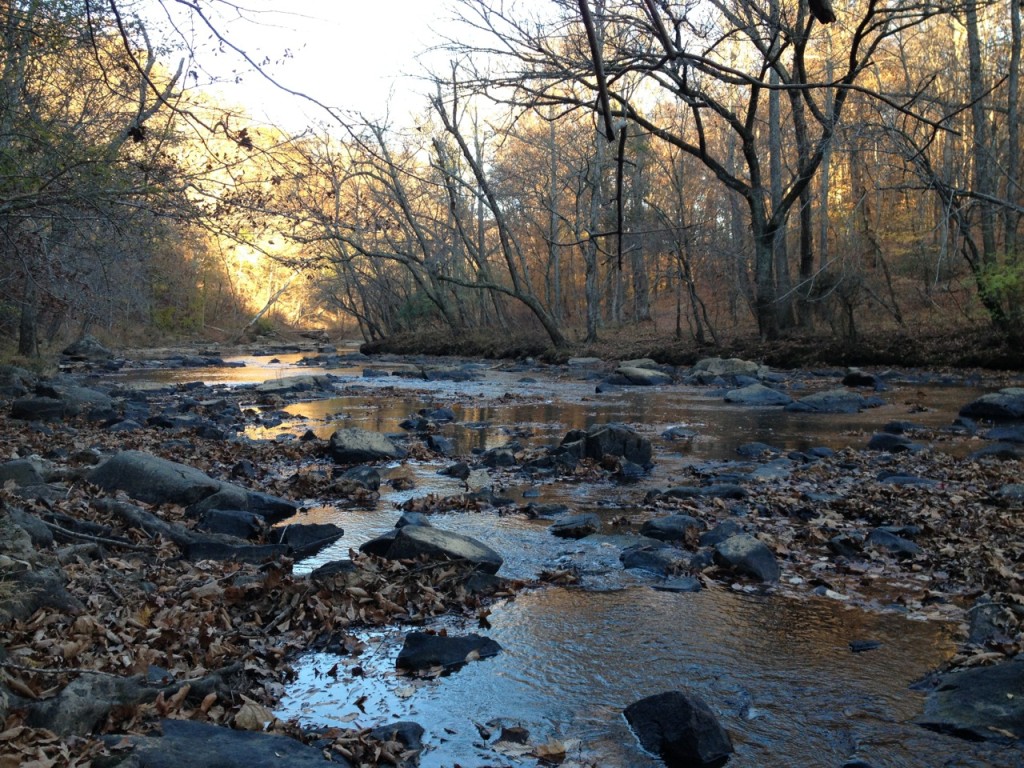Nine days from Thanksgiving and the leaves still cling to the trees, many of them, even the half-shorn maples still gold and rusty, the oaks just dipping the edges of their leaves into copper. I confess to being buoyed by the sight. Once the leaves are on the ground, once I rake them into piles and see them vacuumed up by sweet sweepers, gone to someone else’s compost, fall is over, whatever the calendar says, and winter, minus the frequent snows of my northern youth and the really biting cold that forces you to remember you’re alive, dammit, is a dreary brown season of freezing rain and mud, its challenges dull, its joys slippery and its comforts of the could be worse variety: “To rest contentedly beside the hearth / while those outside are drenched by pouring rain.” If the great maple outside my study window wants to cling a little while longer to its glorious past, I won’t complain.
Then again, the times being what they are and the internet bringing the world’s facts and fancies instantly to my fingertips, I’m painfully aware why this autumn has such a long tail: The world is growing warmer. Anthropogenic climate change. Impending disaster. My fleeting pleasure at avoiding the annual fate of every human being who ever lived in a temperate climate, the cyclical suffering endured by billions of people over tens of thousands of years, is granted by the same forces threatening to end civilization as we know it and plunge the world into chaos and hot darkness. So I’m told.
It’s hard, on a gorgeous fall day, crisp and clear and sixty degrees, to worry much about what the weather will be in a thousand years. It’s also hard to enjoy the day to the fullest nagged by thoughts of dying honeybees and failing crops and flooded cities and millions upon millions more refugees than we already have in the world. The existence of one truth doesn’t make the other false. To call the one a silver lining cheapens both, and to speak too freely of God’s grace seems flip. At the same time, to don sackcloth and ashes, or to pull my shade and worry up a tweet-storm, does nothing to feed and house the people of 2116 — or of 2016, for that matter.
Better, then, to take a walk and enjoy the day. If that walk can carry me to the grocery store or to church or to eat or have a beer, and thus save a trip in the car, then I’ve avoided a trifling contribution to the thing I’m worried about. If not, I might have the chance for a conversation with a neighbor. At the least I won’t have done any harm, and surely taking the trouble to appreciate the good in what’s here ought to be the starting point for asking what needs changing.
I think, though I am not quite sure, that this is the sort of observation that might begin to help us out of the mess we’re in politically. It is not an end point, but it is a starting point. I don’t expect to find universal salvation in taking walks. But if we don’t know our neighbors and our neighborhoods, all the policies in the world won’t save us. And if we can’t enjoy the days we have, we won’t enjoy the better ones we think we deserve.
